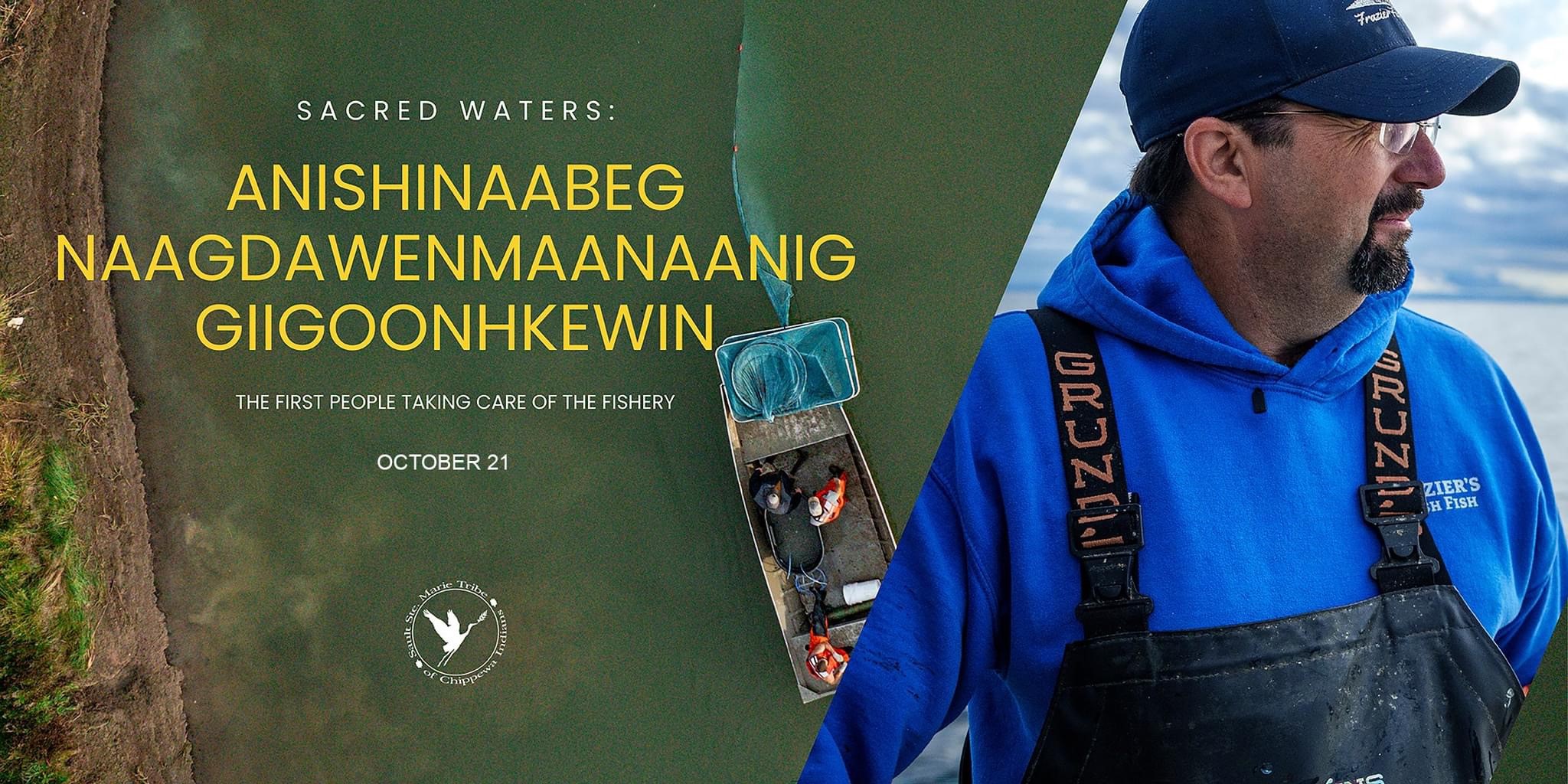
15-minute film documenting the tribe's deep connection to the Great Lakes fishery to be followed by panel discussion, reception
Sault Ste. Marie, MICH. – The Sault Ste. Marie Tribe of Chippewa Indians will host a public screening on Oct. 21st of a new mini-documentary that highlights the tribe’s sustainable fisheries management efforts. The film, Sacred Waters: Anishinaabeg Naagdawenmaanaanig Giigoonhkewin (The First People Taking Care of the Fishery), runs just under 15 minutes and explores the tribe’s ancient connection to the Great Lakes and how Sault Tribe biologists are leading efforts to restore whitefish populations, whose numbers have been severely diminished by invasive species.
“The Anishinaabek have always had a deep history and connection to the land and the water. We are very proud that our fisheries program has been a longtime leader helping to protect and sustain the Great Lakes and its resources, but we’ve only recently started focusing on telling that story,” said Sault Tribe Chairman Austin Lowes. “This film helps us proactively showcase this important work while also providing a historical record that future generations can look back on.”
The free film screening will take place at 6 p.m., Oct. 21, at the Sault Ste. Marie Kewadin Casino’s Dream Makers Theater. The event will include a cultural celebration featuring a traditional Anishinaabe blessing, drum performance and water song, symbolizing the sacred connection between the tribe and local waters. There will also be a panel discussion with the filmmakers and Sault Tribe fisheries team with the opportunity for audience Q and A.
To register for the free film screening event, please visit this link.
Sacred Waters was developed on behalf of the Sault Tribe Board of Directors by director Finn Ryan, whose work focuses on stories of empowerment and revitalization around community, conservation and the outdoors. The Marquette-based Aaron Peterson Studios led on videography, photography and editing.
“We spend a lot of time working with indigenous communities in the Great Lakes region to help them share their stories,” said Ryan. “We learned so much from the time we were able to spend with the tribal fishers and staff. It was an honor to help showcase the important work they are doing to preserve the fisheries in the Great Lakes.”
Individuals unable to attend the Sault Ste. Marie screening on Oct. 21 also have the opportunity to view the documentary at the Fresh Coast Film Festival in Marquette, where it will be screened at 12 noon on both Friday, Oct. 18, and on Saturday, Oct. 19.

